Related Research Articles

Ross John Anderson, FRS, FREng is a researcher, author, and industry consultant in security engineering. He is Professor of Security Engineering at the Department of Computer Science and Technology, University of Cambridge where he is part of the University's security group.
The Royal Radar Establishment was a research centre in Malvern, Worcestershire in the United Kingdom. It was formed in 1953 as the Radar Research Establishment by the merger of the Air Ministry's Telecommunications Research Establishment (TRE) and the British Army's Radar Research and Development Establishment (RRDE). It was given its new name after a visit by Queen Elizabeth II in 1957. Both names were abbreviated to RRE. In 1976 the Signals Research and Development Establishment (SRDE), involved in communications research, joined the RRE to form the Royal Signals and Radar Establishment (RSRE).
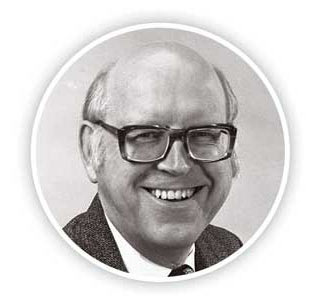
Allen Newell was a researcher in computer science and cognitive psychology at the RAND Corporation and at Carnegie Mellon University’s School of Computer Science, Tepper School of Business, and Department of Psychology. He contributed to the Information Processing Language (1956) and two of the earliest AI programs, the Logic Theory Machine (1956) and the General Problem Solver (1957). He was awarded the ACM's A.M. Turing Award along with Herbert A. Simon in 1975 for their basic contributions to artificial intelligence and the psychology of human cognition.
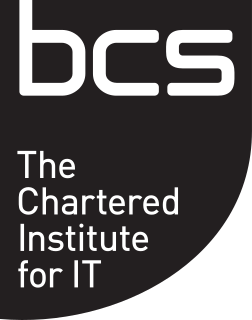
BCS, The Chartered Institute for IT, known as the British Computer Society until 2009, is a professional body and a learned society that represents those working in information technology (IT) and computer science, both in the United Kingdom and internationally. Founded in 1956, BCS has played an important role in educating and nurturing IT professionals, computer scientists, computer engineers, upholding the profession, accrediting chartered IT professional status, and creating a global community active in promoting and furthering the field and practice of computing.
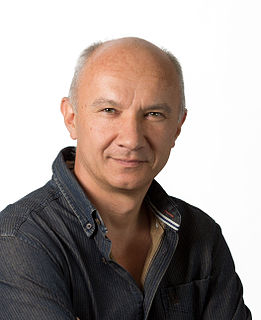
Artur Konrad Ekert FRS is a Polish-British professor of quantum physics at the Mathematical Institute, University of Oxford, professorial fellow in quantum physics and cryptography at Merton College, Oxford, Lee Kong Chian Centennial Professor at the National University of Singapore and the founding director of the Centre for Quantum Technologies (CQT). His research interests extend over most aspects of information processing in quantum-mechanical systems, with a focus on quantum communication and quantum computation. He is best known as one of the pioneers of quantum cryptography.

The Cambridge Philosophical Society (CPS) is a scientific society at the University of Cambridge. It was founded in 1819. The name derives from the medieval use of the word philosophy to denote any research undertaken outside the fields of law, theology and medicine. The society was granted a royal charter by King William IV in 1832. The society is governed by an elected council of senior academics, which is chaired by the Society's President, according to a set of statutes.

Simson L. Garfinkel is the US Census Bureau's Senior Computer Scientist for Confidentiality and Data Access. Previously, he was a computer scientist at the National Institute of Standards and Technology (2015-2017) and, prior to that, an associate professor at the Naval Postgraduate School in Monterey, California (2006-2015). In addition to his research, Garfinkel is a journalist, an entrepreneur, and an inventor; his work is generally concerned with computer security, privacy, and information technology.

The Air University (AU) is a federally chartered public sector research university in Pakistan. Established in 2002, its main campus is located in the capital city of Islamabad, Pakistan. The university has two other functional campuses, Aerospace and Aviation Campus at Kamra and a campus at Multan.
Lewis Richard Benjamin Elton was a German-born British physicist and researcher into education, specialising in higher education.

Jerrold Eldon Marsden was a Canadian mathematician. He was the Carl F. Braun Professor of Engineering and Control & Dynamical Systems at the California Institute of Technology. Marsden is listed as an ISI highly cited researcher.

Alan Richard Bundy is a professor at the School of Informatics at the University of Edinburgh, known for his contributions to automated reasoning, especially to proof planning, the use of meta-level reasoning to guide proof search.
Hugh Christopher Longuet-Higgins was a British scholar and teacher. He was the Professor of Theoretical Chemistry at the University of Cambridge for 13 years until 1967 when he moved to the University of Edinburgh to work in the developing field of cognitive science. He made many significant contributions to our understanding of molecular science. He was also a gifted amateur musician, both as performer and composer, and was keen to advance the scientific understanding of this art. He was the founding editor of the journal Molecular Physics.
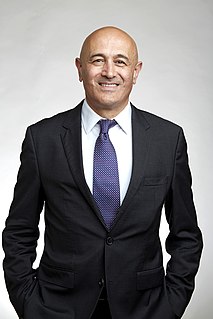
Jameel Sadik "Jim" Al-Khalili is an Iraqi-British theoretical physicist, author and broadcaster. He is professor of theoretical physics and chair in the public engagement in science at the University of Surrey. He is a regular broadcaster and presenter of science programmes on BBC radio and television, and a frequent commentator about science in other British media.
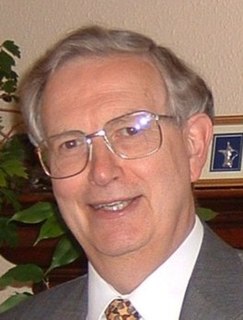
Prof Alan George Smithers is an English educationalist.
Charles Tahan is a U.S. physicist specializing in condensed matter physics and quantum information science and technology. He currently serves as the Assistant Director for Quantum Information Science (QIS) and the Director of the National Quantum Coordination Office (NQCO) within the White House Office of Science and Technology Policy. Tahan is also Chief Scientist of the National Security Agency's Laboratory for Physical Sciences.

Jonathan Andrew Crowcroft is the Marconi Professor of Communications Systems in the Department of Computer Science and Technology, University of Cambridge and the chair of the programme committee at the Alan Turing Institute.
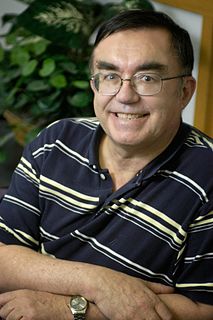
Geoffrey Charles Fox is a British-born American theoretical physicist and computer scientist, distinguished professor of informatics and computing, and physics at Indiana University.

Nicholas Robert Jennings is a British computer scientist and the current Vice-Chancellor and President of Loughborough University. He was previously the Vice-Provost for Research and Enterprise at Imperial College London, the UK's first Regius Professor of Computer Science, and the inaugural Chief Scientific Adviser to the UK Government on National Security. His research covers the areas of AI, autonomous systems, agent-based computing and cybersecurity. He is involved in a number of startups including Aerogility, Contact Engine, Crossword Cyber Security, and Reliance Cyber Science. He is also an adviser to Darktrace, a member of the UK Government's AI Council, chair of the National Engineering Policy Centre and a council member for the Engineering and Physical Sciences Research Council.

The University College of Science, Technology and Agriculture is a university campus, one of five main campuses of the University of Calcutta (CU). The college served as the cradle of Indian Sciences by winning the Nobel Prize in Physics in 1930 and many fellowships of the Royal Society London.
References
- ↑ "Profile Interview: Professor Alan Woodward". 18 December 2020.
- ↑ "Prof Alan Woodward | University of Surrey".